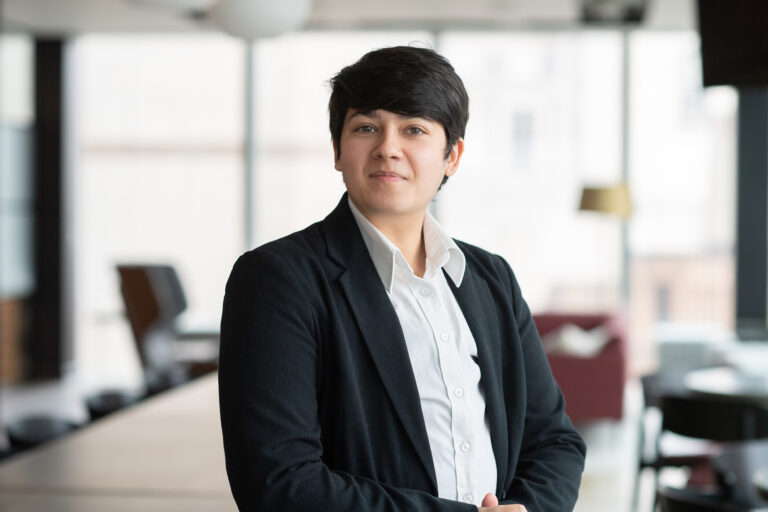





The importance of green technology to society has seen the implementation a number of fast-track patent programmes for green technology by patent offices around the globe. When considering international patent filing strategies for green technology inventions it is worth keeping in mind the requirements to access these accelerated routes.
There are currently several countries with fast-track programmes for green technology patent applications. These programmes vary in terms of the application process and evidence required to gain access, as well as the potential additional fees incurred in doing so. However, they all provide a substantial reduction in the timescales an applicant can expect to obtain a granted patent.
In this article, we’ll take a look at the current national accelerated routes open to green technology patent applications – what’s required for a successful application, the reduction in timescales available to applicants, and any additional fees they require.
Should you wish to use any of the schemes set out below then please contact us and we can advise, typically with the engagement of local attorneys, if they would apply to your patent application.
United Kingdom
The UKIPO introduced accelerated processing for applications relating to inventions having an environmental benefit in May 2009. This is not an automatic scheme, but applicants can request accelerated processing with a brief written statement as to how the invention is environmentally beneficial. There are no fees for accelerated processing under this scheme.
Accelerated processing may be requested for search, examination, combined search and examination, and/or publication. The written request for accelerated processing may be requested either on filing the application or at a later stage.
It is possible to request accelerated processing for both first filings and priority applications. It is also possible to accelerate the prosecution of international (PCT) applications entering the national phase in the UK if the claims have been found to be acceptable by the International Searching Authority.
No reduction in official fees is available. However, given that the official fees for filing, search and examination are typically just £310, a fee reduction would not have a substantial impact in any case.
Europe
At present there is no green channel as such before the European Patent Office. However, there are various ways of accelerating prosecution, such as by using the PACE programme or the Patent Prosecution Highway (PPH). Fee reductions are also available to certain applicants, such as depending upon whether they are a micro-entity.
United States of America
In 2022, the US Patent Trademark Office (USPTO) launched its Climate Change Mitigation Program. Originally intended to run until 2023, the temporary scheme has now been extended until June 2027. The impact of this programme has allowed patent applications for reducing greenhouse gas emissions to benefit from accelerated examination at the USPTO.
To qualify, a patent application must contain one or more claims to a product or process for mitigating climate change by reducing, removing, preventing, and/or monitoring greenhouse gas emissions. Applicants must provide a petition form within 30 days of filing the application. There is no fee. Once accepted, examination, and the resulting first office action or allowance communication, is expedited. Applicants may not apply if an inventor has already been named as an inventor on more than twelve other non-provisional applications in the programme.
Additionally, the USPTO also expanded their award category in 2023 for its Patents for Humanity Program by including green energy inventions. Applicants are able to submit their patent applications to be assessed on one of two sets of criteria: (1) their technology’s positive impact on a humanitarian issue or (2) the availability of their patented technologies to other researchers for conducting research with a humanitarian purpose. Winners receive a certificate to accelerate USPTO processing of one patent application (or other eligible matter listed by the USPTO).
China
Between 2016 and 2022, over 36% of the world’s total of granted green and low-carbon technology patents were Chinese.
The China National Intellectual Property Administration (CNIPA) has been prioritising examination of green technology patent applications since 2012 through their green programme. In 2017, CNIPA introduced prioritised examination for utility models and designs, as well as re-examination of patent applications, utility models and designs. Qualifying technologies include energy conservation and environmental protection, new-generation information technology, biologics, high-end equipment manufacturing, new energy, new material, new energy vehicle and intelligent manufacturing.
Applicants (both Chinese and non-Chinese) may request prioritised examination after the application has entered substantive examination. There is no fee. When requesting prioritised examination, applicants must include copies of known prior art, an indication that the application relates to energy conservation or environmental protection, and details of an approval by state council/provincial IP office, which can be arranged by local attorneys for non-Chinese applicants.
On acceptance into the programme, a first examination report should be issued within 45 days (normally 8 – 10 months), and a final decision within 12 months (normally closer to two years). For re-examined patent applications, the final decision should be issued within seven months. The time frame is much quicker for utility models and designs – a final decision should be issued within two months.
Japan
The Japan Patent Office (JPO) has offered accelerated examination and accelerated appeal examination for green-technology related applications since 2009. Applications that intend to obtain patent protection for green inventions, which are those having an energy-saving effect and that contribute to CO2 reduction, qualify as green-technology related applications.
The request for accelerated examination does not involve an official fee and is made by submitting a written explanation of the needs of the accelerated examination, including comments on how the application qualifies for the accelerated examination as well as comments on the invention in view of the disclosure of the prior art. If the applicant does not have an address or domicile in Japan, then this will need to be carried out through a Japanese representative.
If at least some of the applicant(s) are startups, and the application is “working-related”, then a separate “interview for startups” scheme is also available. “Working-related” applications are applications filed by an applicant or a licensee who has already commercialised the invention or plans to commercialise the invention within two years from the filing date of a request for accelerated examination.
Canada
The Canadian Intellectual Property Office (CIPO) announced its programme for advanced examination of green technologies in 2011, providing applicants with the opportunity to fast-track examination of their patent applications relating to green technology at no additional cost.
To benefit from this programme, applicants are advised to write to CIPO requesting advanced examination and provide a statement of how their patent application relates to green technology that, if commercialised, either helps resolve or mitigate environmental impacts or conserves the natural environment and resources. The request for advanced examination for green technology can only be granted if the application is published.
Once an advanced examination request is processed, a first office action is expected within three months, substantially reducing the average of over a year on the standard route. CIPO records have shown that in some cases the first office action can be as early as two to four weeks from processing of the request.
Australia
The Australian Intellectual Property Office announced its expedited patent examination process for green technologies in 2009. Any patent application relating to green technology can take advantage of the scheme provided the application gives a statement explaining the invention as environmentally beneficial or green technology. There are no additional fees required. The expedited examination aims to reduce the lead times of an examination from a year to between four to eight weeks.
Applicants (or their agents) can request an expedited process in writing or through a phone call. A supervising examiner will then determine whether the examination will be held on an expedited basis.
Republic of Korea
Accelerated examination is possible in Korea for patent applications “directly related to green technology under the Framework Act on Carbon Neutrality and Green Growth For Coping with Climate Crisis”. To qualify, the patent application must be filed by one of:
The invention itself should also relate to green technology, including technology that “replaces the use of fossil energy in the whole process of social/economic activities, achieves carbon neutrality by efficiently using energy and resources and contributes to promotion of green growth, encompassing climate change response technology, energy utilization efficiency technology, clean production technology, new renewable energy technology, resource circulation and environmentally friendly technology, etc.”.
The request for accelerated examination under this scheme should explain why the invention is validly directed to green technology. An official fee is also payable.
Brazil
Brazil is among the world’s top producers of renewable energy, with over 90 percent of the generated electricity coming from renewable sources. Brazil can therefore be an important territory in which to consider patent protection for those involved in environmental technologies.
The Green Patents program at the Brazilian National Institute of Industrial Property (INPI), which started as a pilot in 2012, aims to promote the commercialisation of technologies directed towards the environment and provide priority examination for applications related to green technologies. Technologies covered include: alternative energy production (including biofuels, gasification, and waste); transportation (including hybrid vehicles and vehicles with low aerodynamic drag); energy conservation (including measurement of electricity consumption and energy storage); waste management (including use of waste for other means and means to prevent radioactive contamination in the event of reactor leaks); and sustainable agriculture (including alternative pesticides and soil improvement).
Participation in the programme requires payment of an official fee, with a discount available for individuals and micro-entities, among others. The programme is open to both national applications and PCT applications relating to the above-mentioned green technologies. The application must be published (advanced publication can be requested), examination requested (or being requested) but not yet started, and renewal fees up-to-date.
On average, a Brazilian patent application takes just over 10 years to grant. The Green Patents program aims to reduce this to around 14 months.
Israel
The Israel Patent Office (ILPO) launched its accelerated examination program for green applications in 2009. Green applications are applications in which the invention described “helps to improve the environment, inter alia, by preventing the causes of global warming, reducing air or water pollution, promoting nonpolluting agriculture, and those relating to alternative energy sources etc.”.
Applicants must submit a request for expedited examination, accompanied by justifications for the request, explaining how the invention improves environmental quality or the prevention, treatment, or eradication of Coronavirus. No fee is required. If the request is accepted, the ILPO shall start examination within three months. It is possible to request green classification of an application that has already been filed, so long as examination has not yet begun.
South Africa
The South African Patent Office does not examine patent applications except to confirm that they comply with certain formality requirements. A South African patent application will therefore automatically proceed to acceptance and grant within about 6-12 months unless steps are taken to keep it pending. This can be a simple way to obtain patent protection for green technologies in a territory that is looking to transition to more sustainable practices.
Taiwan
The Accelerated Examination Program (AEP) at the Taiwan Intellectual Property Office (TIPO) has been in place since 2010 and allows accelerated examination to be requested for inventions related to green technology. Qualifying technologies include those for improving energy conservation, developing new sources of energy, renewable energy vehicles, carbon reductions and resource saving. Examination results are issued within six months from receipt of the relevant documents (the average time frame for an examination report to be issued by the TIPO is usually nine months).
To request accelerated examination, patent applications must be published and applicants are required to complete a form indicating which claims relate to a green technology invention (and which parts of the description and drawings provide support this). Alternatively, applicants may submit documentation that sufficiently proves the invention is related to green technology or is beneficial to the energy conservation or carbon reduction. A fee must also be paid.
It is noted that Taiwan is not a PCT contracting state (and so is not a participant of the international PCT patent application system). Non-Taiwanese applicants may file applications at the TIPO within 12 months from the first filed priority application (which can be a PCT application).
Get in touch with our energy and green technologies team.